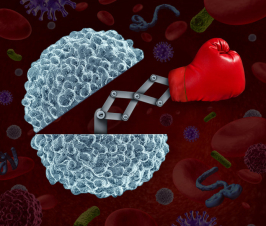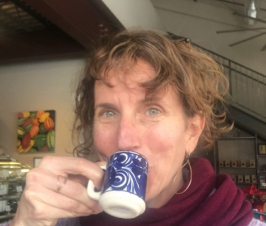It’s New Year’s resolution time, and many of us are making vows, putting together plans and agendas, buying gym memberships and new cookbooks.
But what happens in a few weeks when we relapse our first time? We enter into each year with the best of intentions, but a few months into it, we’re back to our old habits. An article from “Monday Campaigns,” last week brings up an interesting and very powerful idea, drawing on research on circaseptan (weekly) rhythms. Most people are familiar with circadian rhythms, or the daily sleep/wake cycle of a 24 hour period of time which governs hunger, energy and metabolism. But there are other biological rhythms. Circaseptan rhythm is the rhythm of our week; how we experience motivation and discipline over a span of daily working, driven by social, survival, and obligatory factors – and multiple circadian rhythms added together over a span of time.
Dr. Lawrence Cheskin, director of the Johns Hopkins Weight Management Center offers an alternative to a New Year’s resolution which offers an opportunity to re-assert goals in a non-judgemental fashion after a relapse: “Using Monday to reset your goals, celebrate progress and get back on track after a weekend slip-up can help people stay on track for the long haul.”
To this end, The Monday Campaigns, a nonprofit associated with leading public health schools, encourages people to turn their 2017 resolutions into “Monday Resolutions,” gaining 52 chances of success.
According to studies, people consider Monday as a new start and are much more likely to initiate healthy meal changes, movement practices, and smoking cessation on a Monday(1). By using the first day of your week to initiate goals, or reassert goals it may be a lot easier to keep healthy considerations a part of conscious awareness throughout the year.
When setting goals, make them SMART. Setting SMART goals is a method of adding more mindfulness into goal creation. SMART goals are:
S –specific and significant
M –measurable, meaningful, and motivational
A –agreed upon, attainable, and action oriented
R –realistic, relevant, rewarding, and results-based
T –time-based and trackable
SOURCE: Monday Campaigns
 Node Smith, associate editor for NDNR, is a fifth year naturopathic medical student at NUNM, where he has been instrumental in maintaining a firm connection to the philosophy and heritage of naturopathic medicine amongst the next generation of docs. He helped found the first multi-generational experiential retreat, which brings elders, alumni, and students together for a weekend campout where naturopathic medicine and medical philosophy are experienced in nature. Three years ago he helped found the non-profit, Association for Naturopathic ReVitalization (ANR), for which he serves as the board chairman. ANR has a mission to inspire health practitioners to embody the naturopathic principles through experiential education. Node also has a firm belief that the next era of naturopathic medicine will see a resurgence of in-patient facilities which use fasting, earthing, hydrotherapy and homeopathy to bring people back from chronic diseases of modern living; he is involved in numerous conversations and projects to bring about this vision.
Node Smith, associate editor for NDNR, is a fifth year naturopathic medical student at NUNM, where he has been instrumental in maintaining a firm connection to the philosophy and heritage of naturopathic medicine amongst the next generation of docs. He helped found the first multi-generational experiential retreat, which brings elders, alumni, and students together for a weekend campout where naturopathic medicine and medical philosophy are experienced in nature. Three years ago he helped found the non-profit, Association for Naturopathic ReVitalization (ANR), for which he serves as the board chairman. ANR has a mission to inspire health practitioners to embody the naturopathic principles through experiential education. Node also has a firm belief that the next era of naturopathic medicine will see a resurgence of in-patient facilities which use fasting, earthing, hydrotherapy and homeopathy to bring people back from chronic diseases of modern living; he is involved in numerous conversations and projects to bring about this vision.

















